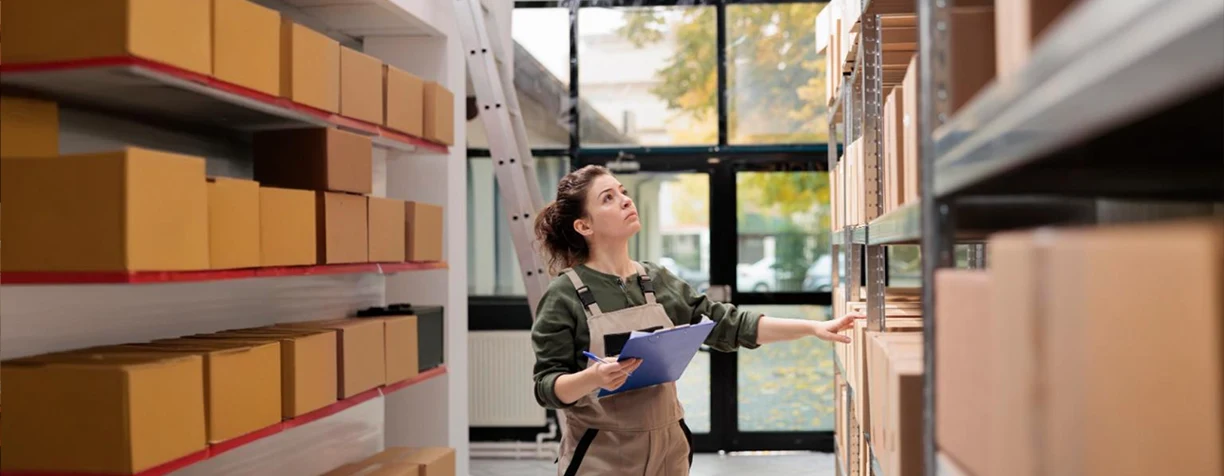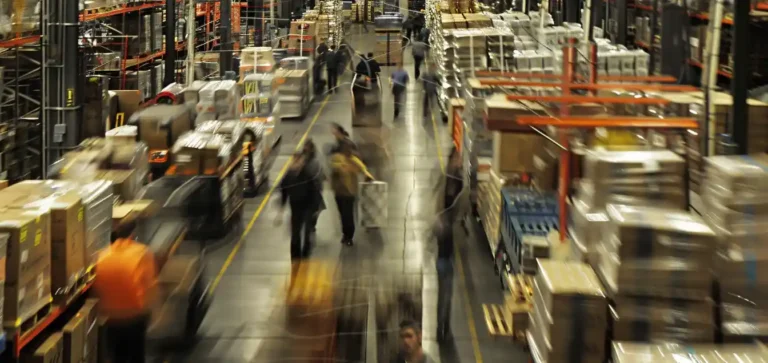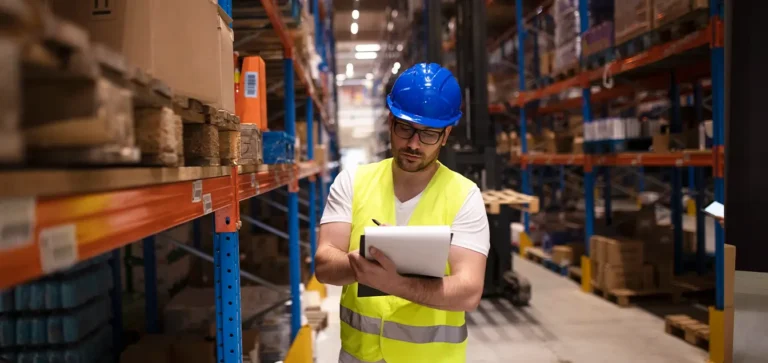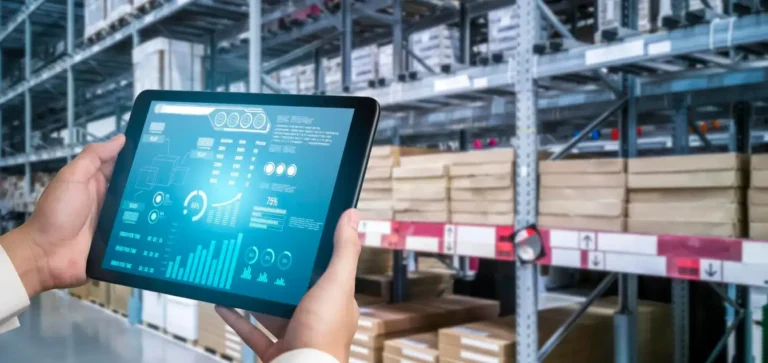In today’s fast-paced digital marketplace, E-commerce Fulfillment Solutions play a pivotal role in efficiently delivering products to customers. From managing inventory to shipping packages, these solutions can significantly enhance an online retail business’s operational performance. By implementing the right strategies and practices, e-commerce brands can achieve higher customer satisfaction and encourage repeat purchases. This blog will delve into various facets of e-commerce fulfillment, exploring effective strategies, best practices, and insights into the latest trends and technologies that can reshape the industry.
Table of Contents
What Is an E-commerce Fulfillment Service?
E-commerce fulfillment services encompass the processes and operations associated with delivering a product to the customer. This involves overseeing inventory, fulfilling orders, and managing the shipping process. Businesses can either manage these processes in-house or collaborate with third-party logistics (3PL) providers like DelGate to enhance their operational capacity.
Consider this: According to a recent survey, 79% of customers expect faster delivery times, and 67% of them may abandon their carts if shipping options do not meet their expectations. Therefore, understanding what constitutes effective E-commerce Fulfillment Solutions is vital for long-term success.
E-commerce Fulfillment Strategies
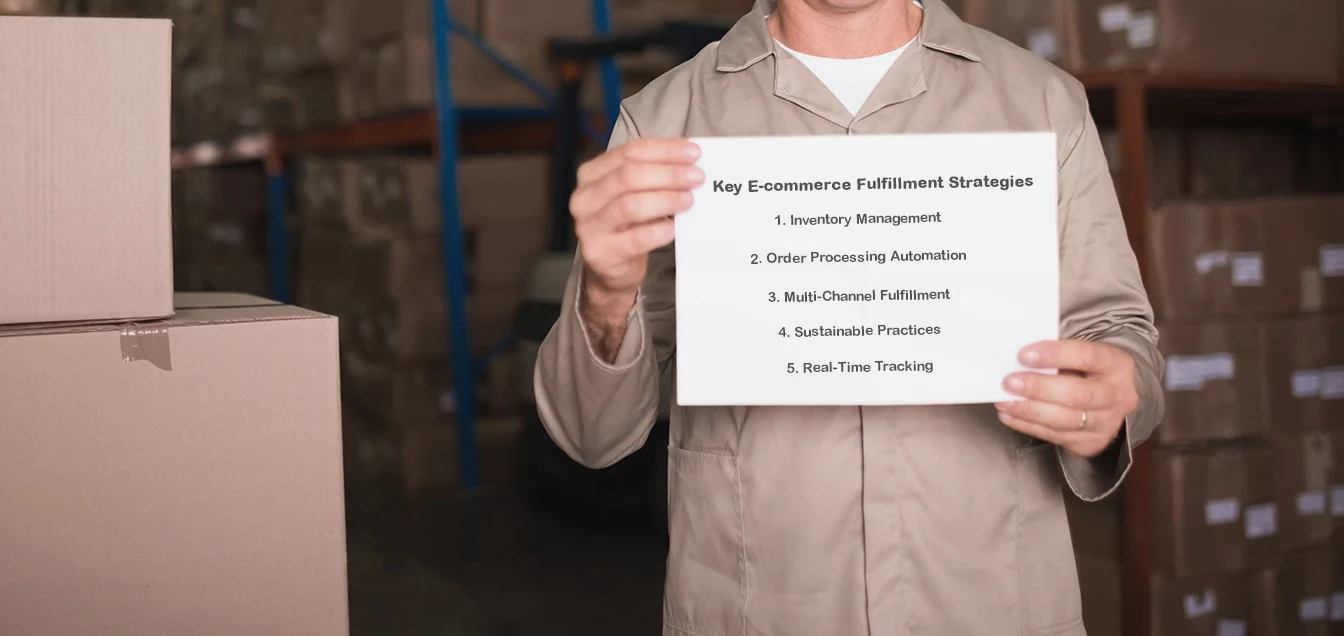
When implementing effective E-commerce Fulfillment Solutions, developing a solid strategy is essential. Below are some effective strategies that can guide businesses toward fulfilling their operational goals:
- Direct Shipping: This popular strategy involves sending products directly from the manufacturer to the customer. Reducing handling cuts logistical expenses and speeds up delivery times.
- Utilization of Fulfillment Centers: Using fulfillment centers enables businesses to store inventory closer to their customer base, greatly improving delivery times. These centers are designed for efficient order processing.
- Forecasting and Inventory Management: Effective inventory management ensures that products are readily available, lessening the risk of stockouts and delays. Advanced forecasting systems can help businesses anticipate demand fluctuations throughout the year.
- Shipping Cost Optimization: Implementing various shipping options can lower costs while aligning with customer expectations for delivery speeds. Partnering with multiple carriers can facilitate this.
Having a clearly defined strategy ensures that your E-commerce Fulfillment Solutions align with business objectives and customer expectations.
E-commerce Fulfillment Tactics
To further enhance the efficiency of your fulfillment operations, specific tactical approaches can be applied. Some effective e-commerce fulfillment tactics include:
- Automation: Implementing automated systems for inventory tracking, order processing, and label printing can significantly minimize human errors, enhancing accuracy and speed in operations.
- Data Analytics: Utilizing data analytics provides insights into customer preferences and buying habits, enabling brands to optimize inventory levels effectively.
- Efficient Returns Management: Creating a streamlined return process can foster customer loyalty. A hassle-free return policy encourages repeat purchases, knowing customers can easily return items if needed.
A combination of well-considered strategies and targeted tactics will empower businesses to refine their E-commerce Fulfillment Solutions and elevate service delivery.
E-commerce Fulfillment Practices

Best practices for managing e-commerce fulfillment not only ensure compliance with industry standards but also contribute to operational efficiency. Consider these effective best practices:
- Frequent Staff Training: Regular staff training on the latest fulfillment technologies and customer service practices promotes operational excellence and reduces errors.
- Engaging with Customer Feedback: Encouraging customer feedback on delivery experiences provides valuable insights, helping identify areas for improvement.
- Collaboration with Suppliers: Building strong relationships with suppliers can yield better service levels and terms, contributing to smoother operations overall.
By aligning day-to-day operations with established best practices, companies can significantly enhance their overall fulfillment capabilities.
3PL Logistics Canada
When seeking reliable E-commerce Fulfillment Solutions, many businesses turn to 3PL logistics providers in Canada. Third-party logistics providers manage warehousing and shipping, allowing retailers to concentrate on their core business activities. Companies like DelGate offer comprehensive services that integrate inventory management with order fulfillment tailored for the Canadian market, enhancing E-commerce Fulfillment in Canada.
A report published by the Canadian Supply Chain Sector Council indicated that 62% of businesses using a 3PL provider reported increased service levels and customer satisfaction. This statistic underscores the benefits of leveraging specialized logistics firms in today’s competitive environment.
Fulfillment Services Canada
In Canada, various fulfillment services are available for e-commerce businesses. Here are some noteworthy providers:
- DelGate: Known for its comprehensive logistics solutions geared specifically toward Canadian businesses, including inventory management, order fulfillment, and regional shipping expertise.
- ShipBob: This provider features a network of strategically positioned fulfillment centers across North America, ensuring swift and dependable services.
- Amazon Fulfillment: By utilizing Amazon’s extensive logistics network, businesses can leverage their fulfillment capabilities to reach customers quickly.
- Canada Post: Offers a broad range of delivery solutions designed to facilitate shipping across Canada for e-commerce businesses.
- Kuehne + Nagel: A well-regarded global logistics provider with a robust distribution network established in Canada.
These fulfillment services offer unique solutions to help businesses enhance their operational efficiencies and meet customer demands.
Fulfillment Technology Solutions

Incorporating fulfillment technology solutions can significantly boost logistics efficiency. Key technologies utilized in the fulfillment process include:
- Warehouse Management Systems (WMS): These systems manage daily operations in a warehouse, including tracking inventory and processing orders.
- Inventory Tracking Software: This software allows businesses to monitor stock levels in real-time, preventing inventory shortages or overstocking.
- Automated Packing Solutions: Technology that automates the packing process not only saves time but also minimizes the chances of shipping errors.
| Year | Adoption Rate (%) | Key Technology |
| 2020 | 40 | WMS |
| 2021 | 55 | Inventory Tracking |
| 2022 | 70 | Automated Packing |
| 2023 | 85 | Robotics |
As depicted in the table, the adoption of fulfillment technologies has surged significantly over recent years, indicating the industry’s shift toward tech-enabled solutions.
Top E-commerce Fulfillment Trends
Keeping up with the latest E-commerce Fulfillment Trends is essential for staying ahead in the competitive e-commerce market. Here are some key trends to keep an eye on:
- Sustainability Efforts: Increasingly, brands are prioritizing eco-friendly packaging solutions in response to consumer demand for sustainable practices.
- Personalization: Customizing fulfillment operations based on customer behavior and preferences is becoming a common practice.
- Same-Day Delivery: Urban areas are witnessing an uptick in demand for rapid fulfillment options, prompting businesses to strategize ways to accommodate these expectations.
- Global Logistics: As e-commerce expands on a global scale, businesses must consider international shipping solutions and adhere to various regulations.
- Increased Focus on Customer Experience: Providing transparent and reliable order tracking has become essential for enhancing customer satisfaction.
By keeping an eye on these top trends, businesses can adapt their E-commerce Fulfillment Solutions to meet evolving market demands.
Best E-Commerce Fulfillment Service Provider
When selecting the right fulfillment partner, businesses should take into account several factors, including experience, technology, and the quality of customer service. Among the leading e-commerce fulfillment service providers, DelGate is notable for its expertise in handling Canadian logistics needs and advanced technology solutions, making it an ideal partner for businesses looking to optimize their fulfillment processes.
Conclusion
In conclusion, utilizing robust E-commerce Fulfillment Solutions can greatly enhance operational efficiency, boost customer satisfaction, and drive business growth. By embracing the right strategies, tools, and technologies, companies can successfully navigate the complexities of the modern e-commerce world. As customer expectations evolve, the demand for cutting-edge fulfillment services in Canada will only increase. For businesses aiming to stay competitive, focusing on innovative fulfillment solutions will be key to long-term success.

